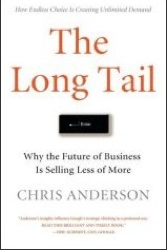
Via Wikipedia: This page is about the magazine editor. For the wrestling announcer, go to Kevin Kelly (announcer), and for the wrestling performer known as "Mr. Magnificent" Kevin Kelly, see Kevin Wacholz.
Kevin Kelly (b. 1952) is the founding executive editor of Wired magazine, and a former editor/publisher of the Whole Earth Catalog. He has also been a writer, photographer and conservationist. Kelly is a student of cultures (Asian ones in particular) and is considered by some an expert in digital culture.
Kelly's most notable book-length publication, Out of Control: The New Biology of Machines, Social Systems, and the Economic World 1994, presents a view on the mechanisms of complex organization. The central theme of the book is that several fields of contemporary science and philosophy point in the same direction: intelligence is not organized in a centralized structure but much more like a bee-hive of small simple components. Kelly applies this view to bureaucratic organisations, intelligent computers, and to the human brain.
The Matrix (1999 film)
Andy and Larry Wachowski, writers/directors of the film The Matrix, required the principal actors of the film to read three books prior to the start of filming, including Kelly’s 1995 book Out of Control: The New Biology of Machines, Social Systems, and the Economic World. The other two were Simulacra and Simulation by Jean Baudrillard and Introducing Evolutionary Psychology by Dylan Evans, Oscar Zarate (Illustrator), Richard Appignanesi (Editor).
Kelly can be seen in a series of interviews on The Roots of the Matrix disk in the 10-disk DVD The Ultimate Matrix Collection set.














